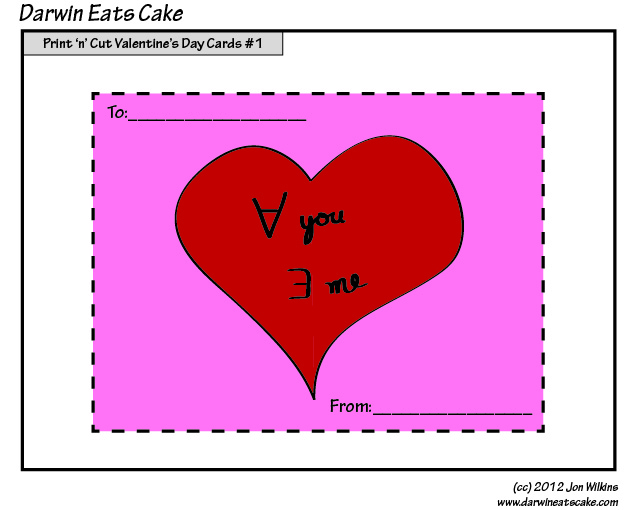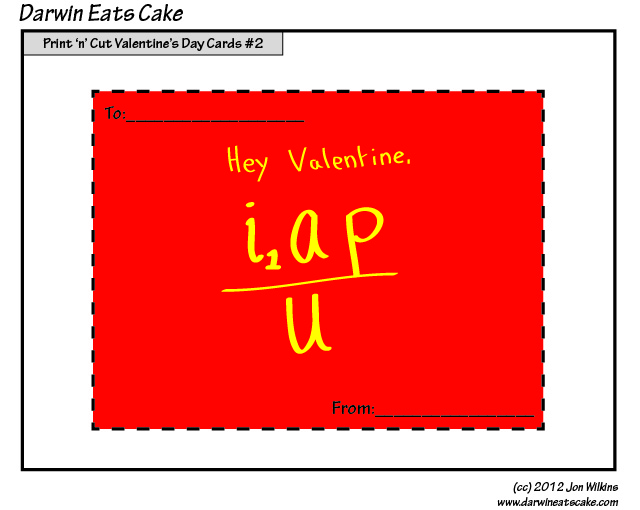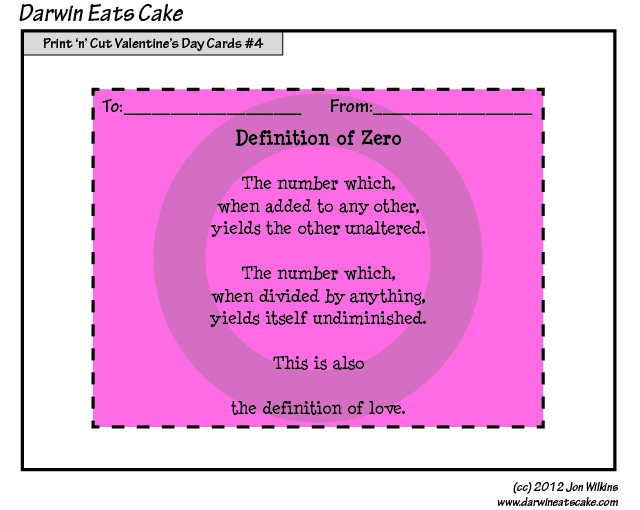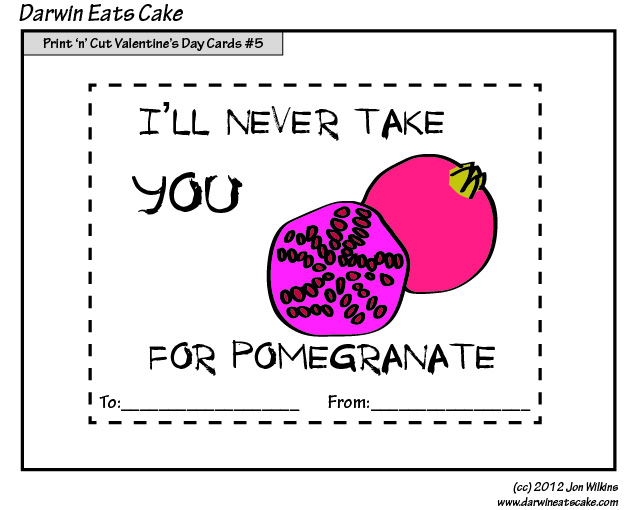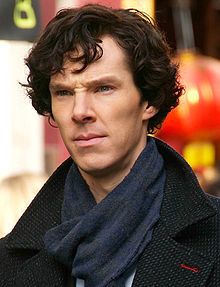So, stop me if you’ve heard this one.
Q: What’s the difference between E. O. Wilson and a stopped clock?
A: A stopped clock does not have unlimited access to a national media platform to push its ridiculous ideas on the public.
Bazinga!
A couple of weeks ago, E. O. Wilson published a piece in the Wall Street Journal, where he argued that you don’t need math to be a great scientist. There are two parts of the argument. First, that science is more about conceptual thinking that does not require mathematical formalism to get at great ideas. Second, that when it comes time to mathematize, you can always find a mathematician to collaborate with.
He has already been taken to task in places like Slate and Huffington Post. The criticism in these pieces and most of the grumbling I’ve heard around the internet has been something along the lines of, “Nuh uh! Math is too important!” More specifically, that the era of math-free scientific discovery is over. That to operate at the frontier of science in the twenty-first century, you have to be able to grapple with the mathematical and statistical concepts required in the days of big data.
There’s something to that.
On the other hand, I’m sympathetic to what Wilson is trying to do here. I would hate to see anyone drop out of science because they don’t feel that they can keep up with the math. Of course, that’s partly because I think most people can do more math than they think they can, if you know what I mean.
But what I want to focus on here is Wilson’s view of collaboration. This, even more than math, is going to be the must-have talent of the twenty-first-century scientist. The thing about science is, an awful lot of it has been done. To get to the frontiers of human knowledge requires years of study, and, for those of us without super powers, a lot of specialization. At the same time, the most interesting and important problems often lie between areas of specialization, and require contributions from more than one area. Those most interesting and important problems are going to be solved by teams and networks of people who bring different skills to the table, and who are able to integrate their skills in a way that leads to a whole that is greater than the sum of the parts.
It’s that integration bit, I think, that Wilson does not really get. Wilson’s view of collaboration seems to go something like this: you make some observations about some biology, come up with some ideas, then you go find someone who can translate those into the language of mathematics.
Here’s the thing about translation, though. It can’t be unidirectional, or rather, it shouldn’t be unidirectional. At the risk of something or other (obscurity? pretentiousness?), I’m going to dip into poetry here. Robert Haas (Poet, Berkeley Professor, and Occupy hero), in addition to writing a bunch of his own extraordinary verse, has translated seven volumes of poetry by Czech Nobel laureate Czesław Miłosz. Or, more accurately, he collaborated with Miłosz to produce those translations.
After Miłosz’s death, Haas included their translation of Czesław Miłosz’s poem “O!” in his own volume Time and Materials. The poem is prefaced with this note about the translation process:
In his last years, when he had moved back to Kraków, we worked on the translation of his poems by e-mail and phone. Around the time of his ninetieth birthday, he sent me a set of poems entitled “Oh!” I wrote to ask him if he meant “Oh!” or “O!” and he asked me what the difference was and said that perhaps we should talk on the phone. On the phone I explained that “Oh!” was a long breath of wonder, that the equivalent was, possibly, “Wow!” and that “O!” was a caught breath of surprise, more like “Huh!” and he said, after a pause, “O! for sure.” Here are the translations we made:
Now, if you’re not a writer and/or avid reader of poetry, it may seem strange to fuss over the difference between “Oh!” and “O!” But worrying about the difference between “Oh!” and “O!” is precisely the sort of thing that differentiates poetry from other forms of writing. Robert Frost famously defined poetry as “what gets lost in translation.” One way to unpack that statement is to say that translation can typically capture the basic meaning of words and phrases, but the part of writing that is poetry is the part that goes beyond that basic meaning. Poetry is about subtle differences in meaning. It is about connotation and cultural resonance. It is about the sounds that words make and the emotional responses that they trigger in someone who has encountered that word thousands of times before, in a wide variety of contexts.
These things almost never have simple one-to-one correspondences from one language to another. That means that a good translation of poetry requires a back-and-forth process. If you have a translator who is truly fluent in both languages — linguistically and culturally — this back-and-forth can happen within the brain of the translator. But, if your translation involves two people, who each bring their expertise from one side of the translation, they have to get on the phone every so often to discuss things like the difference between “O!” and “Oh!”
Doing mathematical or theoretical biology is exactly like this.
The theories and observations that build up in the biological domain exist in a language that is profoundly different from the language of mathematics. For theory in biology to be both accurate and relevant, it has to stay true to both of these languages. That means there has to be a vibrant, even obsessive, back-and-forth between the biological observations and concepts and the mathematical representations that attempt to capture and formalize them.
As in the poetry case, if you, as an individual scientist, have a deep understanding of the biology and a fluency in the relevant mathematics, that back-and-forth can happen in your own brain. Where E. O. WIlson is right is in his assertion that, if you don’t have the math, you can still make a contribution, by focusing on building your deep understanding of the biology, and then by finding yourself a mathematician you can collaborate with.
But there’s a trick.
If you’re going to follow this route, you have to sit down with your mathematician, and you have to walk through every single equation. You have to press them on what it means, and you have to follow the thread of what it implies. If you’re the mathematician, you have to sit down with your biologist and say, “If we assume A, B, and C, then mathematically that implies X, Y, and Z.” You have to understand where, in the biology, A, B, and C come from, and you have to work together to discover whether or not X, Y, and Z make any sense.
Basically, each of you has to develop some fluency in the other’s language, at least within the narrow domain covered by the collaboration. If you’re not willing to put in this level of work, then yes, you should probably consider a different career.
Now, maybe you think I’m being unfair to Wilson here. After all, he doesn’t explicitly say that you should hand your ideas over to the mathematicians and walk away. And obviously, I don’t have any privileged access to the inner workings of Wilson’s brain or the nature of his collaborations.
But let’s go back to a couple of years ago, when he collaborated with Martin Nowak and Corina Tarnita to write a controversial paper in which they argued that modeling the evolution of social behaviors based on “kin selection” was fundamentally flawed. That paper elicited a response from the community that is rare: multiple responses criticizing the paper on multiple fronts, including one letter (nominally) co-authored by nearly 150 evolutionary biologists.
I won’t go into the details here, as I have written about the paper and the responses multiple times in the past (here and here, in particular, or you can just watch my video synopsis of the criticism here).
Briefly, the controversial article (published in Nature, arguably the most prestigious journal for evolutionary biologists), completely misinterprets, misrepresents, and/or ignores the work done by other people in the field. It’s a little bit like if you published a physics paper where you said, “But what if the speed of light is constant in different frames of reference? No one has ever thought of that, so all of physics is wrong!” That’s an exaggeration, of course, but the flaws in Wilson’s paper are of this general type.
The weird thing about the paper is that it includes an extensive supplement, which cites much of the literature that is disregarded by the main text of the paper. It is exactly the sort of error that happens when you have something that is written by a disconnected committee, where the right hand does no know what the left hand is doing. Basically, it is hard to imagine a scenario in which someone could actually have understood the papers that are cited and discussed in the supplementary materials, and then turned around and, in good faith, have written that paper.
That leaves us with a few possible explanations. It could be that the authors were just not smart enough to understand what they were talking about. Or it could be that they deliberately misrepresented prior work to make their own work seem more original and important. For the purposes of our discussion here, let’s assume that neither of these explanations is accurate.
Instead, let’s assume that everyone involves is fundamentally competent, and was acting in good faith. In that case, perhaps the problem came from a failure of collaboration. E. O. Wilson probably knows more than just about anyone else in the world about the biology underlying the evolution of social behavior — especially among eusocial insects. Martin Nowak is a prominent and prolific mathematical biologist. Corina Tarnita was a postdoc at the time, with a background primarily in mathematics.
Wilson, as he acknowledges, lacks the mathematical skills required to really understand what the models of kin selection do and do not assume and imply. Tarnita, I imagine, has these skills, but as a young researcher coming out of math, perhaps lacked the biological knowledge and the perspective on the field to understand how the math related to the prior literature and the state of the field. Nowak, in principle, had both the mathematical skills and the biological experience to bridge this gap. He’s a curious case, though, as he, rather famously in the field, is interested in building and solving models, and has little interest in what has been done by other people, or in chasing down the caveats and nuanced implications of his work.
Among the three of them, Wison, Nowak, and Tarnita have all of the skills and knowledge required to write an accurate analysis of models of kin selection. But if assembling the requisite skills was all that was necessary, that Nature paper would have been very different — in much the same way that you could dump a pile of gears, shafts, and pistons in my driveway, and I could drive away in a Camaro.
The challenge of interdisciplinary collaboration is to combine your various skills in a way that creates something greater than the sum of the parts. If you can master this, you’ll be able to make great contributions to whatever field you apply your skills and interests to.
In the case of Wilson’s disastrous paper, what we got was a situation where the deficits that each of the researchers brought to the table combined to create something greater than the sum of the parts. Sadly, I get the feeling that Wilson does not understand this difference, that he thinks collaborating with mathematicians means explaining your intuition, and then waiting for them to “prove” them.
So, yes, you can be a great scientist in the twenty-first century, even if you don’t have great mathematical skills yourself. But, just as Robert Haas called up Czesław Miłosz on the phone to discuss the difference between “O!” and “Oh!” maybe you’re going to have to call up your mathematician collaborators to talk about the difference between O(x) and o(x). You don’t necessarily have to understand the difference in general, but you do need to understand the difference and its implications in the context of the system you’re studying, otherwise you’re not really doing science at all.










